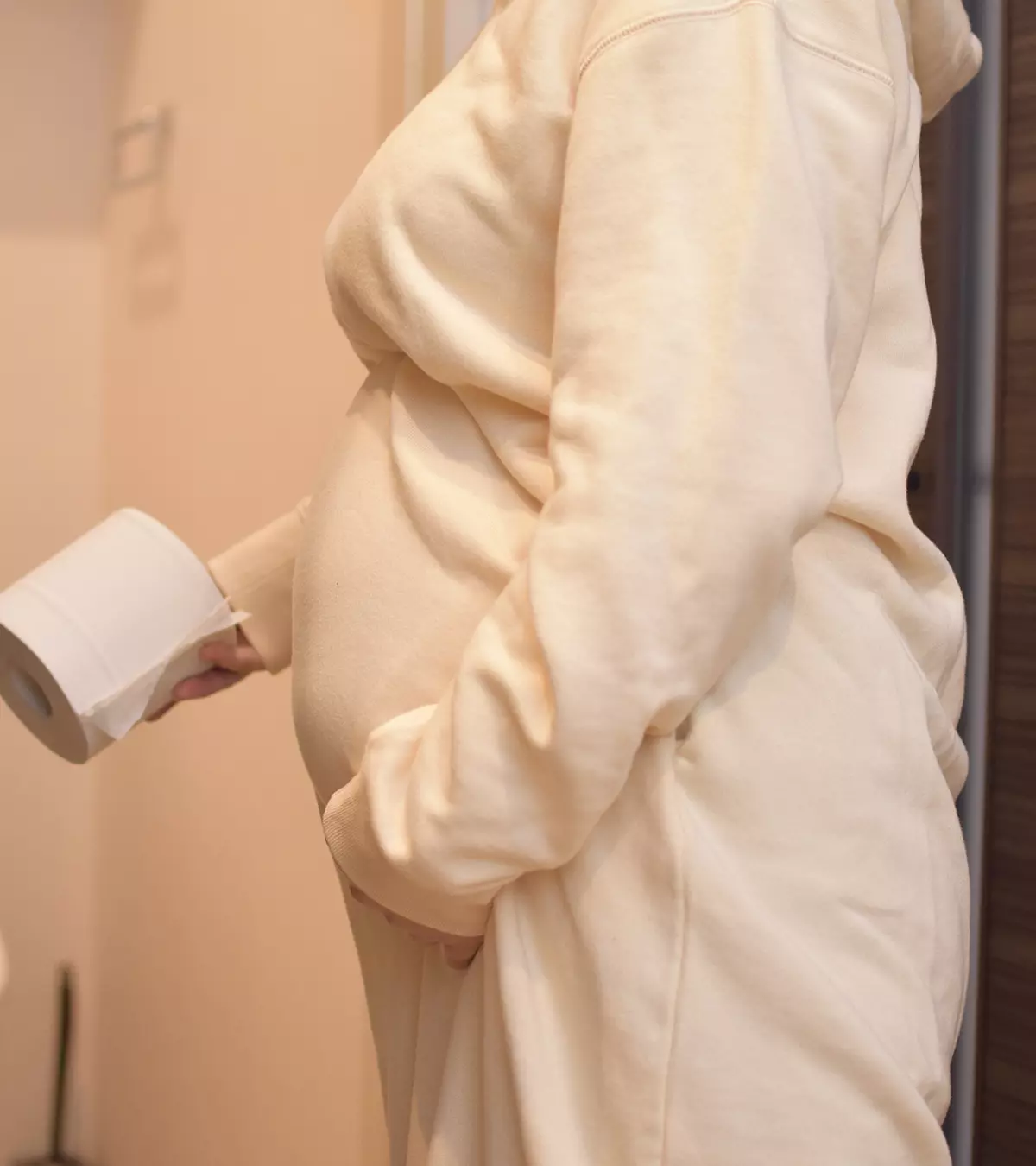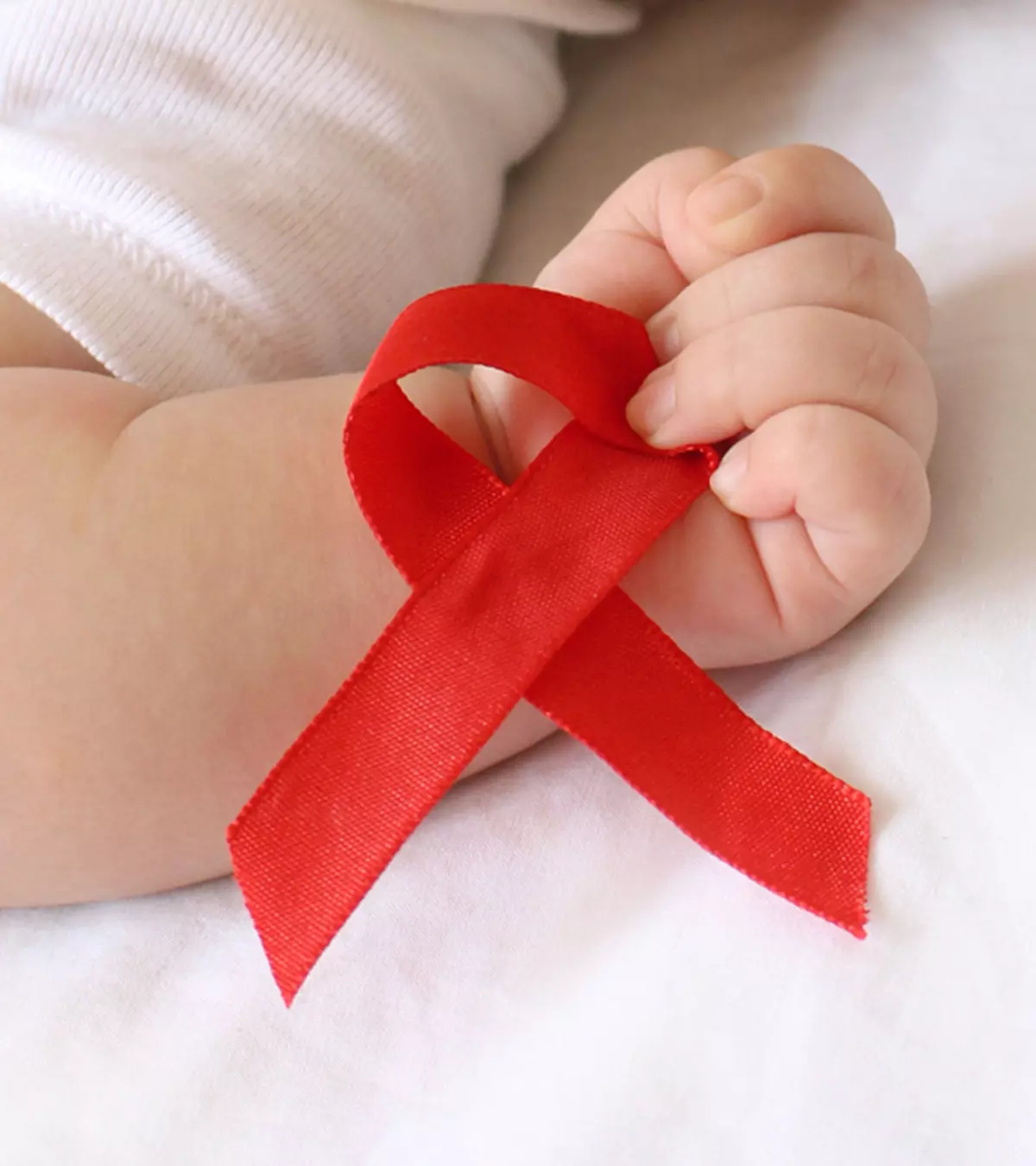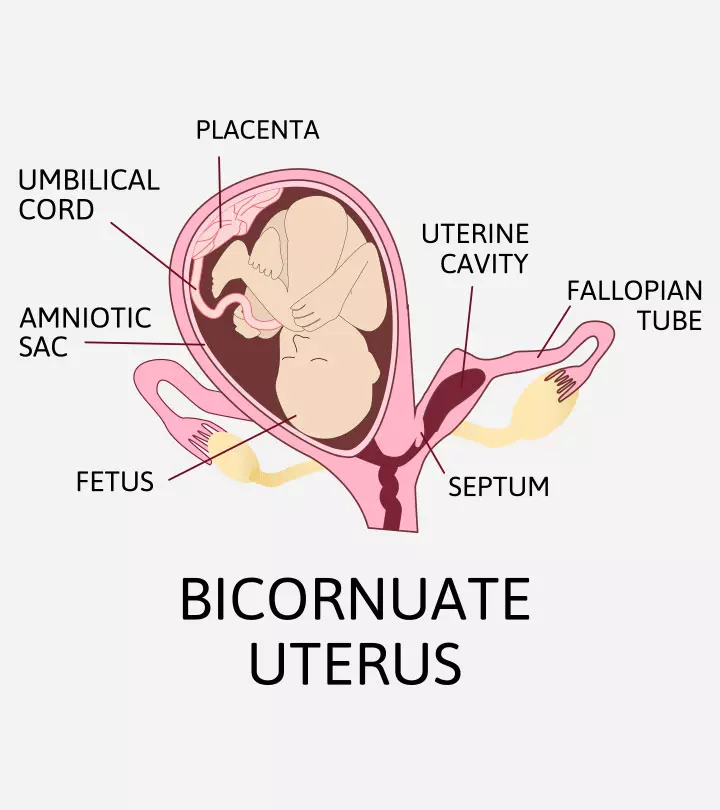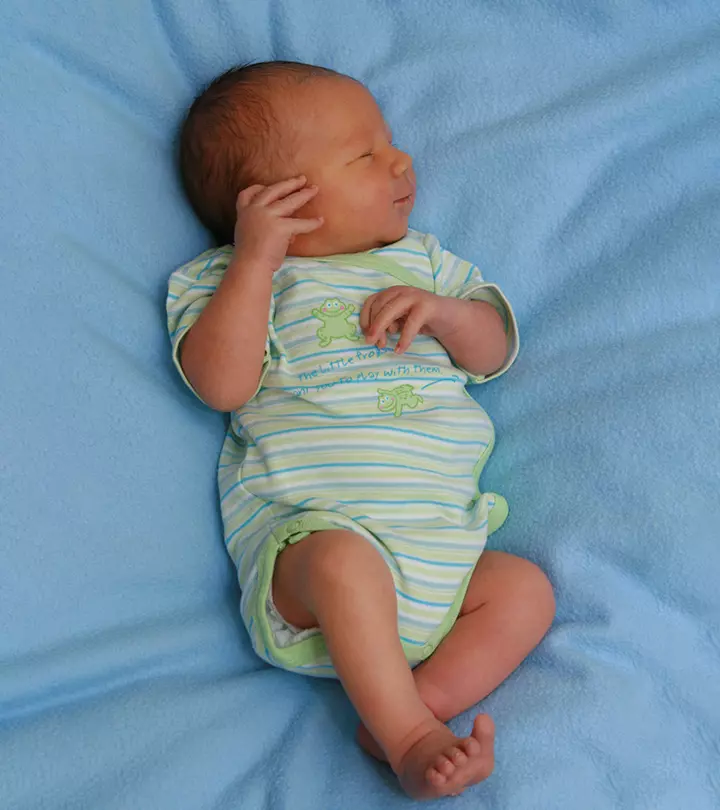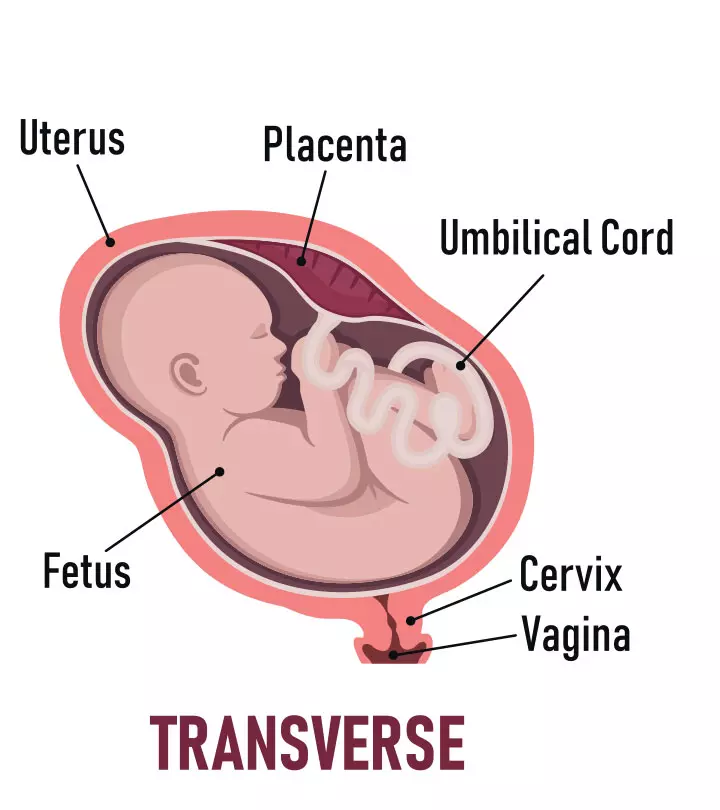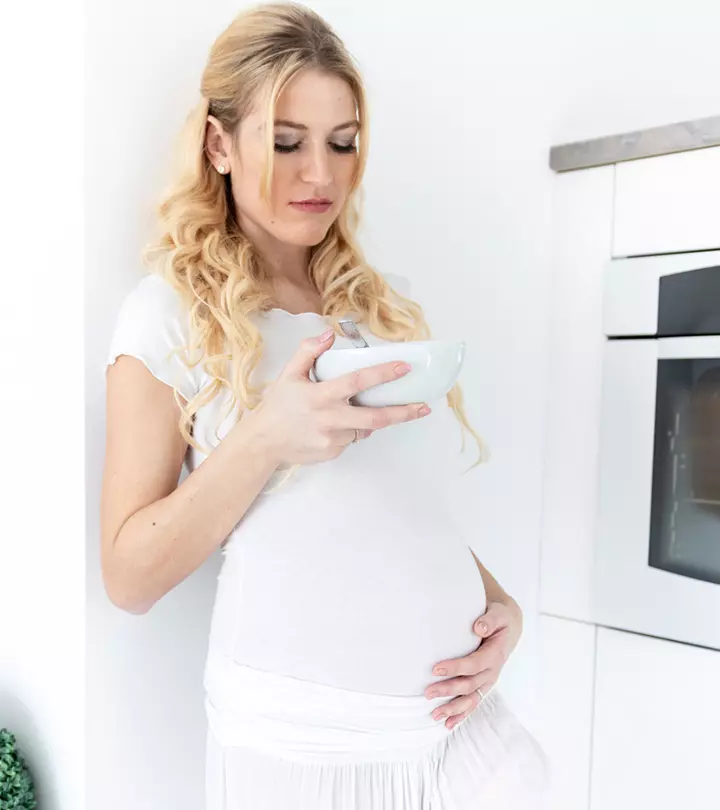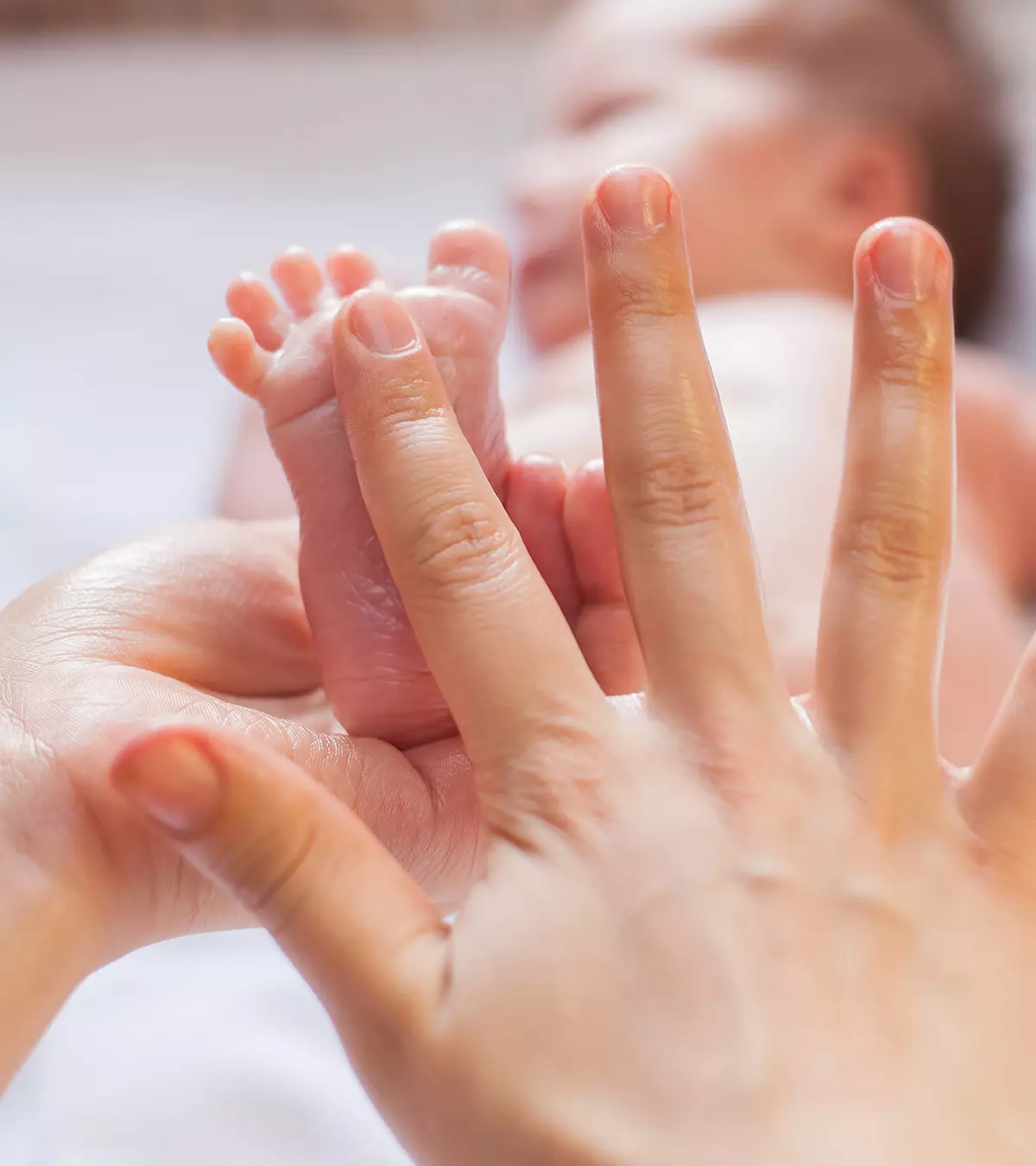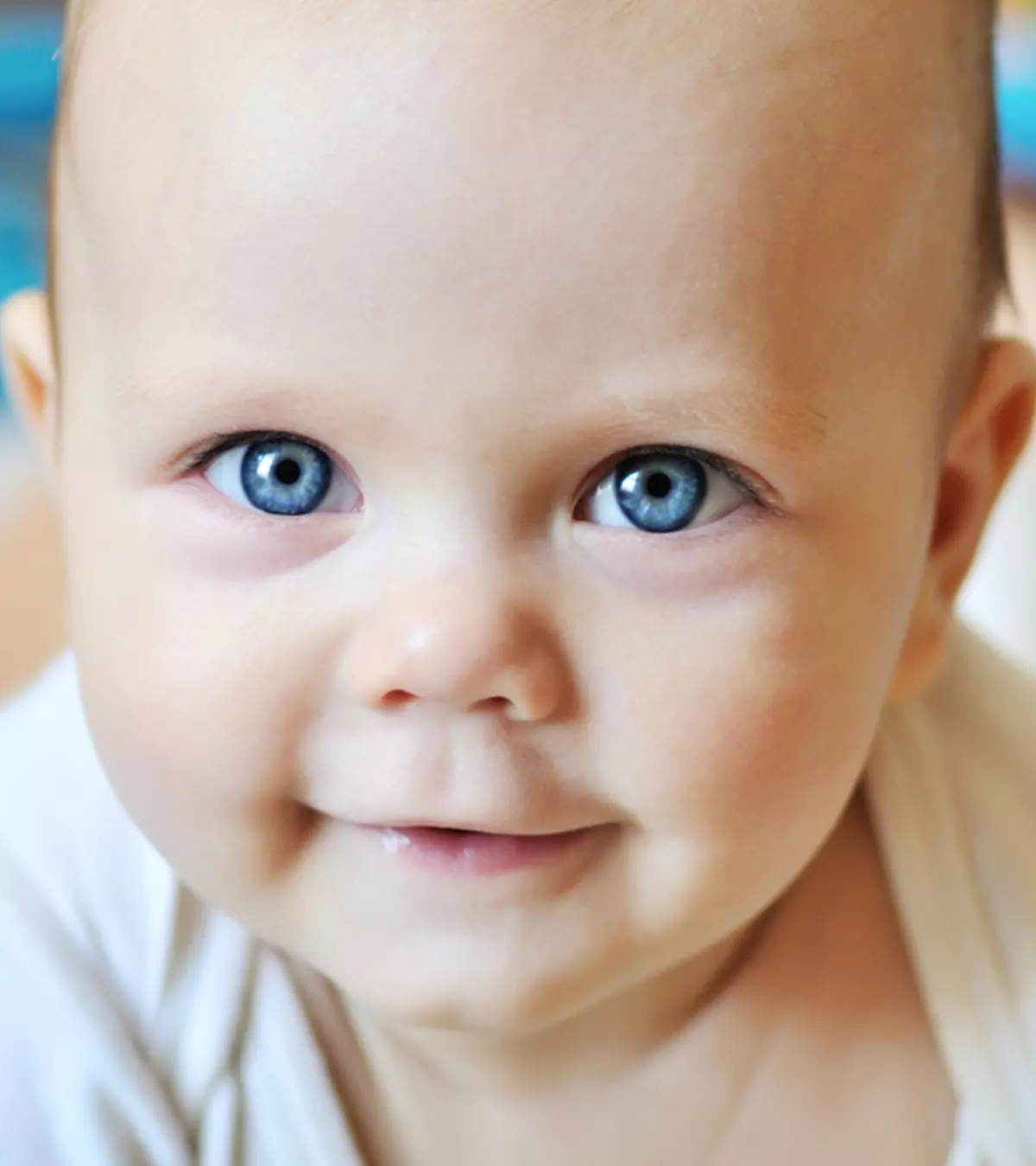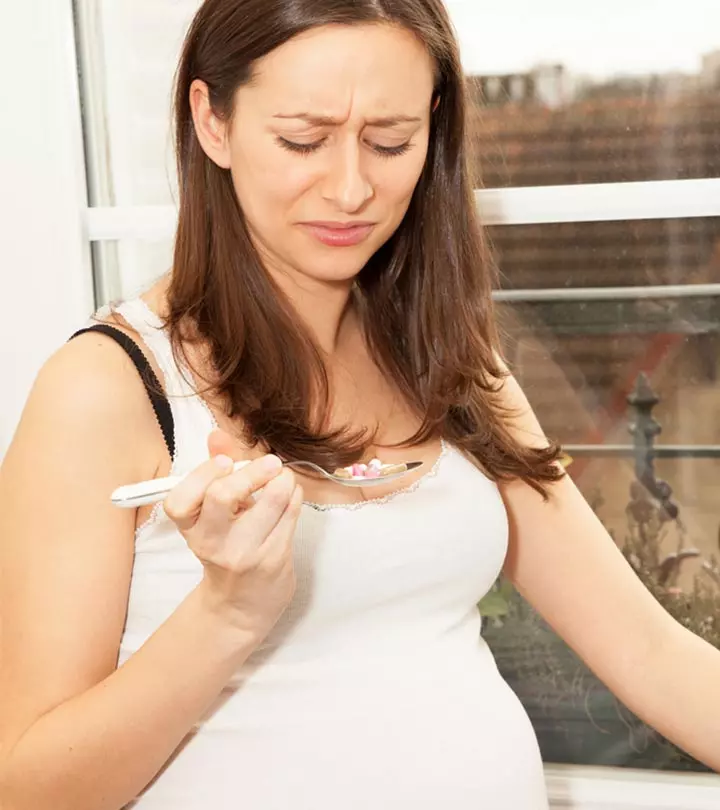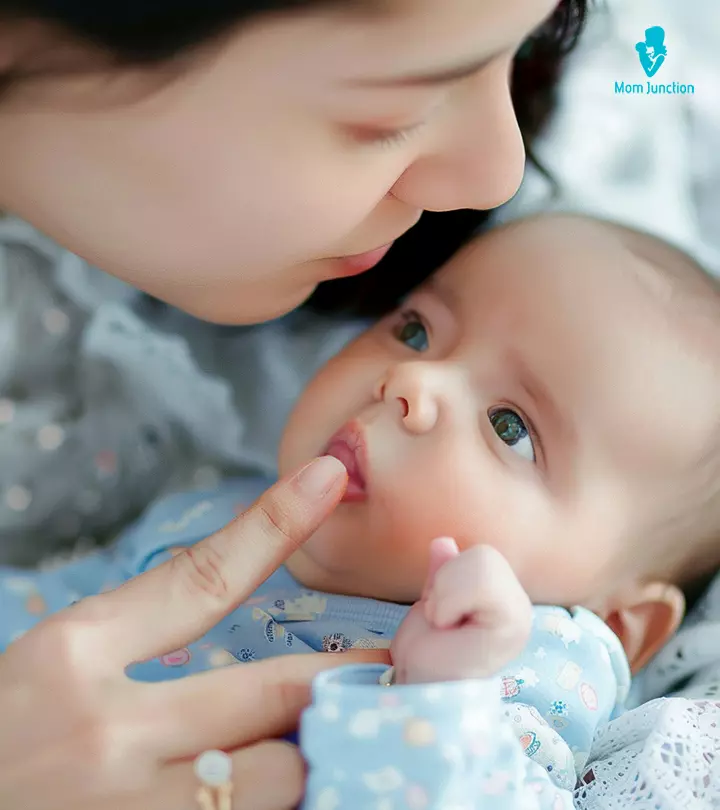
Image: Midjourney/ MomJunction Design Team
If your baby’s lip quivers rapidly, particularly their lower lip, then they may have a condition called baby lip quiver.
Sometimes, this quivering might be accompanied by crying. In addition, the tremble would resemble that of a cartoon character when it is feeling cold.
Many factors contribute to a baby’s lip quiver. These factors could be the common cold or an underlying complex health issue such as an underdeveloped immune system or low vitamin levels. Understanding the reasons behind a baby’s lip quivering can help parents distinguish between normal developmental behaviors and potential health concerns, guiding them in seeking timely medical advice when necessary. Although you need not worry, observing your baby for other accompanying symptoms is safe. Note any unusual and repetitive behaviors or symptoms interfering with your baby’s well-being.
Read on to know more about the causes behind this lip quivering, the treatment, and the signs to watch out for.
Key Pointers
- The quivering of a baby’s lips is normal and can occur due to an underdeveloped nervous system, cold temperature, use of certain muscles, or underlying morbidity.
- The doctor may carry out a physical examination along with a blood test and imaging modalities such as CT scan, EEG, or X-rays as part of the diagnosis.
- Treatment usually involves home observation and remedies, but the doctor may prescribe medications and therapy if a serious condition is diagnosed.
- The persistence of the quivering for more than three months may indicate an underlying condition that requires medical intervention.
Infographic: When Not To Worry About Baby’s Lip Quivering
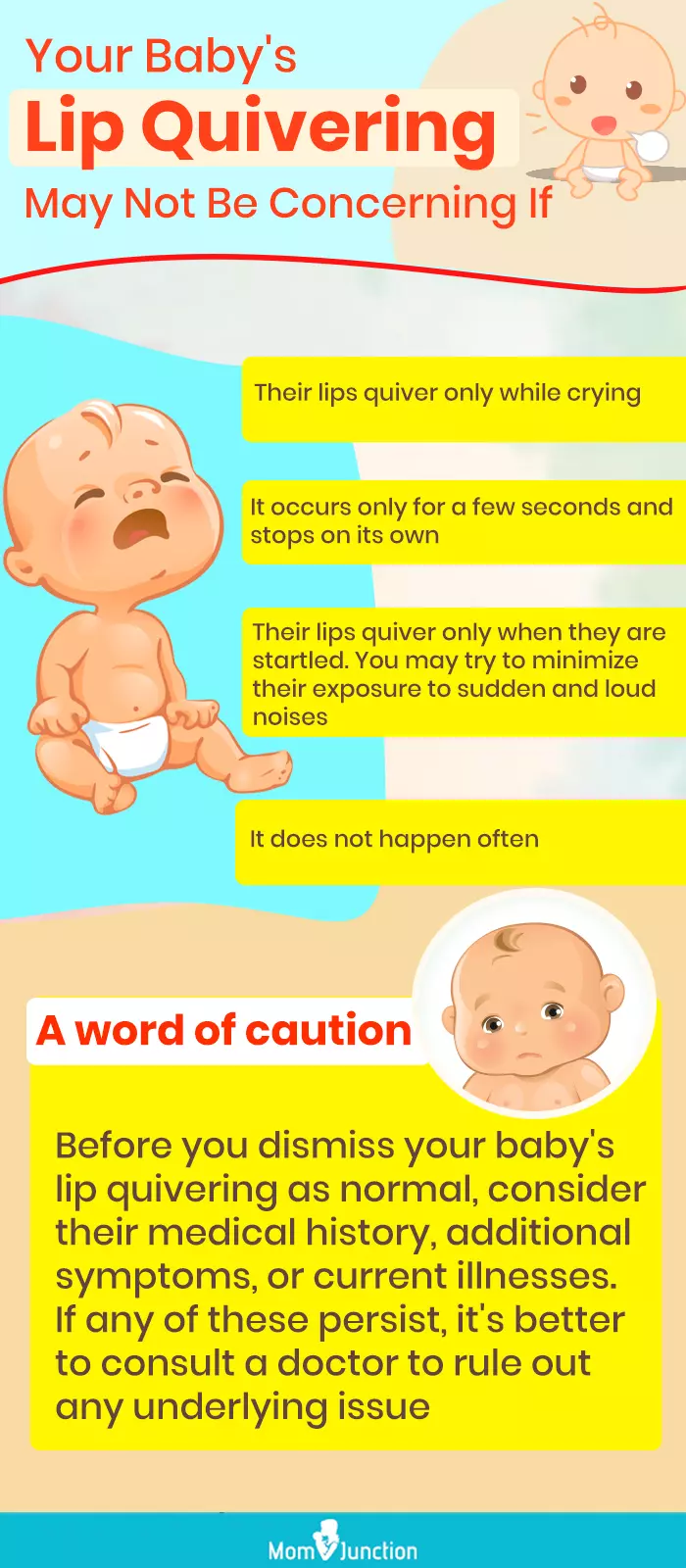
Illustration: Momjunction Design Team
What Does Lip Quivering In Babies Mean?
Lip quivering refers to rapid, involuntary movement of the lip muscles that typically lasts for a couple of seconds to a few minutes. Your baby’s lips may quiver when they cry or feel cold. Their lips may also quiver during feeding due to still-developing muscles and reflexes involved in sucking and swallowing. While occasional lip quivering in babies is normal, its persistent or frequent presence may indicate an underlying problem. If you notice persistent or frequent lip quivering, with or without additional symptoms, seek medical attention.
Why Does A Baby’s Lips Quiver?
Here are some possible reasons for the quivering of lips in babies.
1. Immature nervous system
Babies are born with an immature nervous system, which might cause the lower lip to tremble.
This is normal and generally subsides in two or three months. During the growing period, the brain sends electrical impulses throughout the body. When this becomes erratic or too quick, it can be too much for the baby’s immature nervous system to handle, causing the lips to quiver (1) (2) (3).
Sometimes, overstimulation can cause trembles and jerks in other parts of the body. These could be behind the lip quivering when your baby is young. If the quivering persists after your baby is six months, consult your pediatrician.
Dr. Sharon Wiener, a board-certified pediatrician from Plano, Texas, says, “Lip quivering is a normal primitive reflex due to an immature nervous system. As long as your baby is alert, eating well, and happy, this reflex gradually resolves over the first four months. However, for persistent lip quivering after four months or lip quivering with a change in your baby’s mental status, feeding or general well-being, other more serious causes must be considered.”
2. Use of muscles
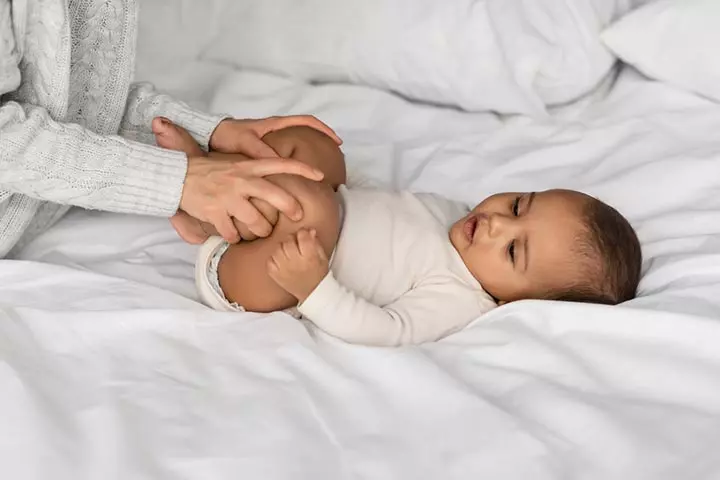
Image: Shutterstock
Sometimes, the baby’s lips might become quivery when they use certain muscles for peeing or passing wind. During such instances, the baby’s lower lip and jaw shake uncontrollably for a few seconds. This is common in newborns, as their muscles are still fragile. If your little one’s lips quiver, check their diaper.
3. Change in the temperature
Another common reason why a baby’s lips quiver is the cold temperature. You might often notice your baby’s lips quivering, their teeth chattering, and their body shuddering when you take them out in the cold or when you put them in the bathtub. Keeping your baby in a comfortable environment and appropriately dressing them can minimize lip quivering due to cold.
4. Medical reasons
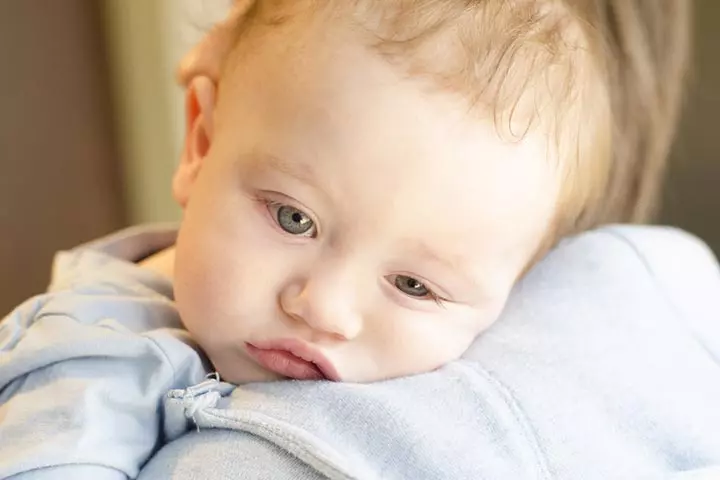
Image: Shutterstock
In rare cases, baby lip quivering could result from a congenital disability or an underlying medical issue. Some pathological conditions associated with tremors include hypoglycemiaiA condition in which the body’s blood sugar level is lower than 70 mg/dL , intracranial hemorrhageiBleeding in brain and the skull. It’s a life-threatening emergency. , and hyperthyroid state (4). Studies indicate that tremors and quivering of lips or mouth could also indicate hypocalcemiaiA treatable condition in which the body’s calcium is below the standard range TwitchingiBrief, spontaneous muscle contractions , this could be due to an underlying kidney problem or genetic cause for the low level.
Such medical conditions, including neurological disorders are generally accompanied by other symptoms, such as sleep disturbances, poor feedings, irritability, twitching episodes, and generalized seizures in babies (5).
If you notice prolonged quivering of lips in your baby and have ruled out nonmedical reasons, it is best to consult your pediatrician.
 Quick fact
Quick factDiagnosis Of Lip Quivering In Babies
Your child’s doctor would do a physical examination to understand the reason behind the lip quivering. They may also ask questions about the baby’s medical history and if you had any complications during pregnancy or delivery.
The doctor might also recommend tests such as brain imaging (CT Scan or MRI), EEG, and X-rays to understand the brain’s functioning. Blood tests may also be conducted to understand if there are any deficiencies.
 Quick tip
Quick tipTreatments For Baby Lip Quiver
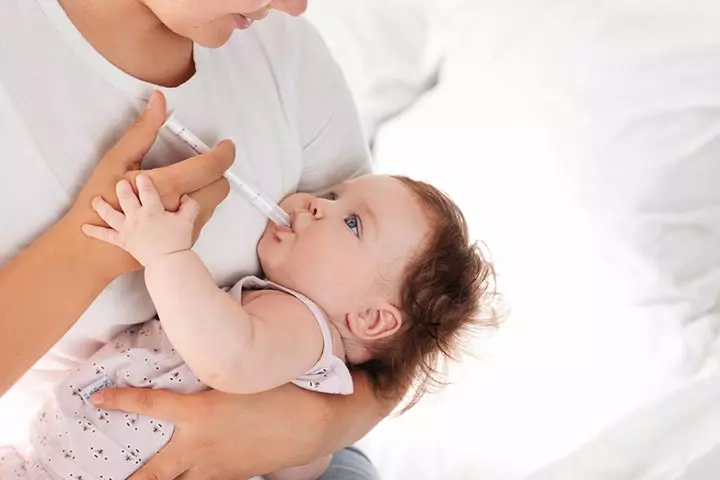
Image: Shutterstock
If the quivering of lips is due to an immature nervous system or weak muscles, it usually improves on its own in two to three months.
But, if your doctor has diagnosed any other medical issues, they might recommend the following treatments.
- For hypocalcemia, the treatment options depend on the extent of calcium deficiency in babies. If the calcium levels are less than 6mg/dL in preterm infants and 7mg/dL in term infants, your doctor might prescribe calcium replacements (5).
- In the case of more serious neurological problems, the doctor might prescribe medications or physical therapy.
 Quick fact
Quick factTips For Easing Quivering Lips In Babies
You can follow these tips for easing your baby’s quivering lips in the case of nonmedical reasons.
- Cover your baby in warm clothes and make sure their bath water is at an optimum temperature.
- Hold your baby close and gently tap on their lips when they quiver.
- Keep track of the time and situations when your baby’s lips quiver.
- Checking your baby’s blood sugar levels if they are at a risk for hypoglycemia (4).
Avoid exposing them to cold climates for long hours.
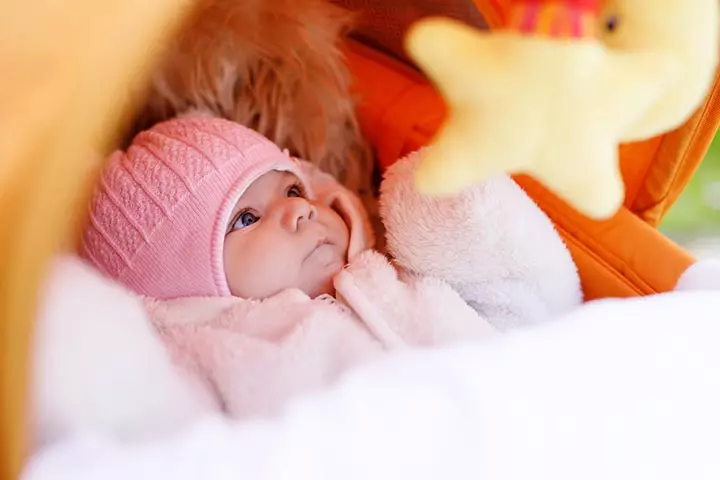
Image: Shutterstock
- Breastfeed them exclusively for the first six months.
- Eat nutritious food so that your breast milk contains all the nutrients required for your baby to grow and thrive.
- Avoid overstimulating your baby (2).
- If you are concerned about your baby’s lip quivering, it is advisable to seek medical attention and have them evaluated by a doctor.
If your baby’s lip quivering is occurring due to an underlying medical condition, treating the condition can help prevent these quivers.
What Are The Complications Of Lip Quivering In Babies?
Lip quivering is a normal aspect of neonatal development and poses no complications. However, chronic lip quivering in babies may interfere with their ability to latch onto the nipples and feed. Disruptions in feeding can affect a baby’s nutrient intake and hydration, which can impact their weight gain and overall development. If lip quivering is caused by an underlying condition, additional complications may arise, depending on the specific cause.
Frequently Asked Questions
1. Why does my baby quiver his lower lip while crying?
Lower lip quivering is one of the primitive newborn reflexes caused due to an immature nervous system (1). Activities such as crying or feeding may send rapid nerve impulses that the developing nervous system cannot process completely, causing quivering of the lower lip. Dr. Wiener observes, “These jittery impulses can mean your baby is stressed and reacting to an external stimulus such as a loud noise or extreme excitement.”
2. How long do babies’ lips quiver?
Lip quivering is usually a harmless newborn reflex that takes two to three months to fade away (1) (2) (3).
3. Could a quivering bottom lip be a sign of a congenital disability?
A quivering bottom lip does not always indicate a congenital disability in babies. This may occur since their brain structure and functions are developing. In some cases, it can also be a sign of congenital disability. However, doctors usually exclude other possible causes, such as low calcium levels, muscle movements, and low glucose levels, before considering diagnosis or tests for congenital disabilities (6).
4. What should I do if my baby’s lip quivering continues beyond three months?
If your baby’s lip quivering continues beyond three months, it is essential to monitor for additional symptoms and consult a pediatrician. Persistent quivering may warrant further investigation to rule out any underlying conditions. Your pediatrician can provide guidance and determine if any further evaluation or intervention is necessary.
As parents, you observe every little movement of your baby. It is okay to get overprotective and over-considerate when you see any unusual movement for the first time, such as a baby lip quiver. Do not panic if you have noticed your baby’s lips occasionally quiver. But keep observing to determine if it is normal or due to nonmedical reasons. If you notice it for a long time and you are concerned about the other symptoms, consult your baby’s doctor and begin proper treatment at the earliest.
References
- Newborn Reflexes and Behavior; Seattle Children’s
- Richard James Huntsman et al.; Nonepileptic motor phenomena in the neonate; NCBI
- Newborn Reflexes and Behavior; American Academy of Family Physicians
- Mônica Ayres de Araújo Scattolin et al.;Chin tremor in full-term neonate after hypoxia; Sao Paulo Medical Journal (2012)
- Dogus Vuralli; Clinical Approach to Hypocalcemia in Newborn Period and Infancy: Who Should Be Treated?; International Journal of Pediatrics (2019)
- Why Is My Baby Quivering Her Bottom Lip?; SleepyBaby.org
- Intraventricular hemorrhage of the newborn; MedlinePlus
- Infantile Spasms: Symptoms, Causes & Treatment?; American Academy of Pediatrics
- Hypocalcemia in the Newborn?; Stanford Children’s Health
Community Experiences
Join the conversation and become a part of our nurturing community! Share your stories, experiences, and insights to connect with fellow parents.
Read full bio of Dr. Anisa Vahed
- Dr. Sharon Wiener is the primary, board-certified pediatrician at Pediatric Offices At Willow Bend and founder of Wellness at the Spa aesthetics and wellness center. She did her Doctor of Medicine (MD), Pediatrics Residency Program from Children's Medical Center and has over 20 years of experience.
 Dr. Sharon Wiener is the primary, board-certified pediatrician at Pediatric Offices At Willow Bend and founder of Wellness at the Spa aesthetics and wellness center. She did her Doctor of Medicine (MD), Pediatrics Residency Program from Children's Medical Center and has over 20 years of experience.
Dr. Sharon Wiener is the primary, board-certified pediatrician at Pediatric Offices At Willow Bend and founder of Wellness at the Spa aesthetics and wellness center. She did her Doctor of Medicine (MD), Pediatrics Residency Program from Children's Medical Center and has over 20 years of experience.
Read full bio of Rohit Garoo
Read full bio of Dr. Ritika Shah
Read full bio of Vidya Tadapatri










